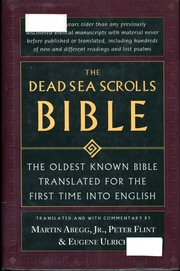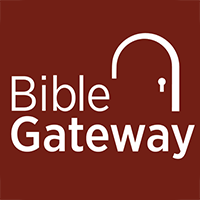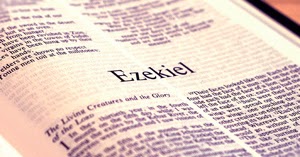rakovsky
Well-known member
The Dead Sea Scrolls Translations website has English translations of the scrolls for Daniel at the link below, covering Daniel 1-12. The translations are based on the World English Bible:. Words in Italics are missing from the scrolls fragments because parts of the paper are missing. Words in red are added, and words that are crossed out in red are Masoretic words that the DSS version lacks. Personally, I find the KJV and NET translation of Daniel very good, and and expect that they are better than the Word English Bible. But one nice thing about this website's text for the DSS fragments of Daniel, is that it translates each fragment separately. This is useful because some fragments have the same chapter of Daniel, ie. the Dead Sea Scrolls have a couple copies of the same chapters of Daniel, and the versions of these chapters can be different from each other.
The Dead Sea Scrolls Bible, on the other hand, translates the DSS into English, but it didn't give a separate translation for English. So it only provides a single translation for Daniel 1, another for Daniel 2, etc. Starting on page 482, the book has an introduction to the Book of Daniel.

The DSS Bible says that in the part of the scroll called the Florilegium that quotes from Daniel 12, the scroll refers to "Daniel the Prophet." This is significant because in the LXX, the Book of Daniel is put in the section called The Prophets, whereas in the Masoretic, the Book of Daniel is among the Writings. The rabbis consider Daniel to be a holy person, but not a prophet per se. Thomas Constable writes in his notes in the NET Bible:
The KJV, Russian Synodal, and New English Translation basically use the Masoretic as their source text.
The NET Bible's website notes about the version's name:

 www.biblegateway.com
www.biblegateway.com
The NET website's format for the BIble readings has a separate section for both the Bible text and the footnotes, as well as Thomas Constable's comments about Daniel as a book.
The NETS (NET Septuagint) version has a preface before each book (eg. Daniel, Psalms, etc.) that comments on translation issues. Neither the online copy of the NET on the NET website did this, and nor do the screenshot pages of the NET Bible on Google Preview.
The NETS version includes both the Old Greek version and Theodotion's.
The Scripture Research Institute's Old Greeg Version Google Preview doesn't have Chapters 1-2.
The Brenton LXX translation uses Theodotion's version.
I ran a comparison with https://text-compare.com/ between the KJV and Brenton's LXX, and using the NETS translation of Theodotion, I found that the Masoretic and Theodotion's translation are practically the same for Daniel 1.
Historically, the Church Slavonic translation used the Septuagint. I notice that the Church Slavonic version for Daniel 9:27 talks about the abomination of desolation being in the holy place (святилище) like the Septuagint has it, and like Jesus mentions in Matt. 24.
The Orthodox Study Bible comes across to me as a mix of the Masoretic and LXX in the spots where we have manuscripts for both of those two sources, ie. the Protocanon.
The Dead Sea Scrolls Bible, on the other hand, translates the DSS into English, but it didn't give a separate translation for English. So it only provides a single translation for Daniel 1, another for Daniel 2, etc. Starting on page 482, the book has an introduction to the Book of Daniel.

The Dead Sea Scrolls Bible : Martin Abegg, Jr., Peter Flint, Eugene Ulrich : Free Download, Borrow, and Streaming : Internet Archive
1999 Harperlibrary id removed dd0001.jpg, dd0003.jpg, dd0681.jpg
archive.org
The DSS Bible says that in the part of the scroll called the Florilegium that quotes from Daniel 12, the scroll refers to "Daniel the Prophet." This is significant because in the LXX, the Book of Daniel is put in the section called The Prophets, whereas in the Masoretic, the Book of Daniel is among the Writings. The rabbis consider Daniel to be a holy person, but not a prophet per se. Thomas Constable writes in his notes in the NET Bible:
The Jews placed Daniel in the Writings section of their Bible. The first two divisions of the Hebrew Bible are the Law and the Prophets. The Writings in Hebrew are the Kethubim and in Greek the Hagiographa.[3] They did this because Daniel was not a prophet in the sense in which the other Hebrew prophets were. He functioned as a prophet and wrote inspired Scripture, but he was a government official, an administrator in a Gentile land, rather than a preaching prophet (cf. Nehemiah).
The KJV, Russian Synodal, and New English Translation basically use the Masoretic as their source text.
The NET Bible's website notes about the version's name:
The NET translation is on Bible Gateway here, with the footnotes at the bottom of the webpage:“NET” is a double entendre, standing both for New English Translation and for the Internet, since this translation is available for free on the Internet (lumina.bible.org).

Bible Gateway passage: Daniel 1 - New English Translation
Daniel Finds Favor in Babylon - In the third year of the reign of King Jehoiakim of Judah, King Nebuchadnezzar of Babylon advanced against Jerusalem and laid it under siege. Now the Lord delivered King Jehoiakim of Judah into his power, along with some of the vessels of the temple of God. He...
The NET website's format for the BIble readings has a separate section for both the Bible text and the footnotes, as well as Thomas Constable's comments about Daniel as a book.
The NETS (NET Septuagint) version has a preface before each book (eg. Daniel, Psalms, etc.) that comments on translation issues. Neither the online copy of the NET on the NET website did this, and nor do the screenshot pages of the NET Bible on Google Preview.
The NETS version includes both the Old Greek version and Theodotion's.
The Scripture Research Institute's Old Greeg Version Google Preview doesn't have Chapters 1-2.
The Brenton LXX translation uses Theodotion's version.
I ran a comparison with https://text-compare.com/ between the KJV and Brenton's LXX, and using the NETS translation of Theodotion, I found that the Masoretic and Theodotion's translation are practically the same for Daniel 1.
Historically, the Church Slavonic translation used the Septuagint. I notice that the Church Slavonic version for Daniel 9:27 talks about the abomination of desolation being in the holy place (святилище) like the Septuagint has it, and like Jesus mentions in Matt. 24.
The Orthodox Study Bible comes across to me as a mix of the Masoretic and LXX in the spots where we have manuscripts for both of those two sources, ie. the Protocanon.





